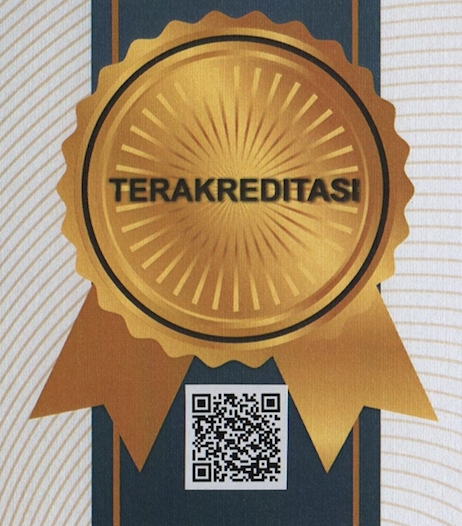Savoring dan kecerdasan adversity pada siswa
 ),
), (1) Universitas Muhammadiyah Tasikmalaya
(2) Universitas Muhammadiyah Tasikmalaya
(3) Universitas Muhammadiya Tasikmalaya
 Corresponding Author
Corresponding Author
DOI : https://doi.org/10.29210/02020617
Full Text:
 Language : id
Language : id
Abstract
The purpose of this study was to find a general description of savoring and adversity intelligence in students and to find a correlation between them. Savoring students explain strategies to increase positive experiences in their lives and overcome negative experiences to become positive by appreciating their experiences. This is illustrated by evaluating aspects of anticipating the future, enjoying present experiences, reminiscing about positive experiences in the past. Literature review revealed that the factor of being unable to be grateful and adversity intelligence has an influence on savoring. Adversity intelligence is defined as an individual's ability to face problems and continue to struggle when experiencing difficulties in his life by controlling problems, understanding problems, limiting problems to aspects of life, and considering the problems at hand to be temporary. So that savoring can increase adversity intelligence in addition to increasing happiness in a person. Because with the savoring in a person, the adversity intelligence will increase. The study used a correlational research design with a sample size of 180 students. Data were collected using simple random sampling technique. Instrument using Savoring Beliefs Inventory (SBI) and Adversity Intelligence Scale. The data analysis technique used the Pearson Product Moment (PPM) correlation method to determine the relationship between savoring and adversity intelligence among students. The relationship between savoring and adversity intelligence was found to be positively correlated. All dimensions of savoring and adversity intelligence were found to be positively correlated. Based on the research results, the more students have high savoring, the higher their adversity intelligence.
Keywords
References
Ahmadi, & Supriyono, S. (2008). Psikologi Perkembangan. Jakarta: Rineka Cipta.
Brown, K. W., & Ryan, R. M. (2003). The benefits of being present: mindfulness and its role in psychological well-being. Journal of personality and social psychology, 84(4), 822-822.
Bryant, F. (2003). Savoring Beliefs Inventory (SBI): A scale for measuring beliefs about savouring. Journal of mental health, 12(2), 175-196.
Bryant, F. B. (1989). A four‐factor model of perceived control: Avoiding, coping, obtaining, and savoring. Journal of personality, 57(4), 773-797.
Bryant, F. B., & Veroff, J. (2007). Savoring Beliefs Inventory (SBI): A scale for measuring beliefs about savouring. . Journal of Mental Health, 12(2), 175–196.
Destiana. (2014). Tingkat Kecerdasan Adversity Ditinjau dari Coping Adaptif dan Coping Maladaptif pada Siswa Kelas X SMAN 8 Yogyakarta. Jurnal Pendidikan, 4(3).
Fletcher, T. B., & Hinkle, J. S. (2002). Adventure based counseling: An innovation in counseling. Journal of Counseling & Development, 80(3), 277-285.
Fredrickson, B. L. (2001). The role of positive emotions in positive psychology: The broaden-and-build theory of positive emotions. American psychologist, 56(3), 218-218.
Huijuan, Z. (2009). The adversity quotient and academic performance among college students at St. Joseph’s College, Quezon City (Bachelor thesis, St. Joseph’s College, New York, United States).
Kellert, S. R., & Wilson, E. O. (1993). The biophilia hypothesis: Island Press.
Korpela, K., Kyttä, M., & Hartig, T. (2002). Restorative experience, self-regulation, and children's place preferences. Journal of environmental psychology, 22(4), 387-398.
Langston, C. A. (1994). Capitalizing on and coping with daily-life events: Expressive responses to positive events. Journal of personality and social psychology, 67(6), 1112-1112.
Matore, M. E. E. M., Khairani, A. Z., & Razak, N. A. (2015). The Influence of AQ on the Academic Achievement among Malaysian Polytechnic Students. International Education Studies, 8(6), 69-74.
Mayer, J. D., Salovey, P., & Caruso, D. R. (2004). TARGET ARTICLES:" Emotional Intelligence: Theory, Findings, and Implications". Psychological inquiry, 15(3), 197-215.
Newes, S., & Bandoroff, S. (2004). Coming of age: The evolving field of adventure therapy. Boulder, CO: Association of Experiential Education.
Noorlaila, F. (2011). Kontribusi Keterlibatan Siswa Dalam Peer Group di Sekolah terdapat Kedisiplinan Siswa. Universitas Pendidikan Indonesia.
Nurihsan, A. J., & Rusmana, N. (2016). Model Konseling Berbasis Petualangan untuk Meningkatkan Kecerdasan Adversitas Mahasiswa. Edusentris, 3(1), 72-84.
Olila, R. G. (2012). Adversity quotient and personal characteristics as correlates of the personality-temperament traits of educators in selected public and private educational institutions. Unpublished Ph. D. Dissertation. Manila: The Faculty of the School of Graduate Studies, Manuel L. Quezon University. Available online also at: https://www. peaklearning. com/documents/PEAK_GRI_olila. pdf [accessed in Manila, the Philippines: January 15, 2.
Parvathy, U., & Praseeda, M. (2014). Relationship between adversity quotient and academic problems among student teachers. Journal of Humanities and Social Science, 19(11), 23-26.
Riduwan. (2010). Skala Pengukuran Variabel-variabel Penelitian. Bandung: Alfabeta.
Shen, C. Y. (2014). A study investigating the influence of demographic variables on adversity quotient. The Journal of Human Resource and Adult Learning.
Sho’imah, D. W. (2010). Hubungan adversity quotient dan self efficacy dengan toleransi terhadap stres pada mahasiswa.
Soesilowindradini. (2006). Psikologi Perkembangan Masa Remaja. Surabaya: Usaha Nasional.
Stoltz, P. G. (2000). Adversity quotient: Turning obstacles into opportunities (Mengubah hambatan menjadi peluang). Jakarta: Grasindo.
Stoltz, P. G. (2003). Adversity Quotient Mengubah Hambatan Mejadi Peluang (Edisi terjemahan T. Hermaya). Jakarta: Grasindo.
Sugara, G. S. (2018). Student Quality-of-Life in Academic Culture Perspective. JOMSIGN: Journal of Multicultural Studies in Guidance and Counseling, 2(1), 47-60.
Suryaputri, I. Y., Rosha, B. C., & Sari, K. (2013). Gender and other factors and risk of mental emotional problems among students in Indonesia. Health Science Journal of Indonesia, 4(2), 98-102.
Refbacks
- There are currently no refbacks.




